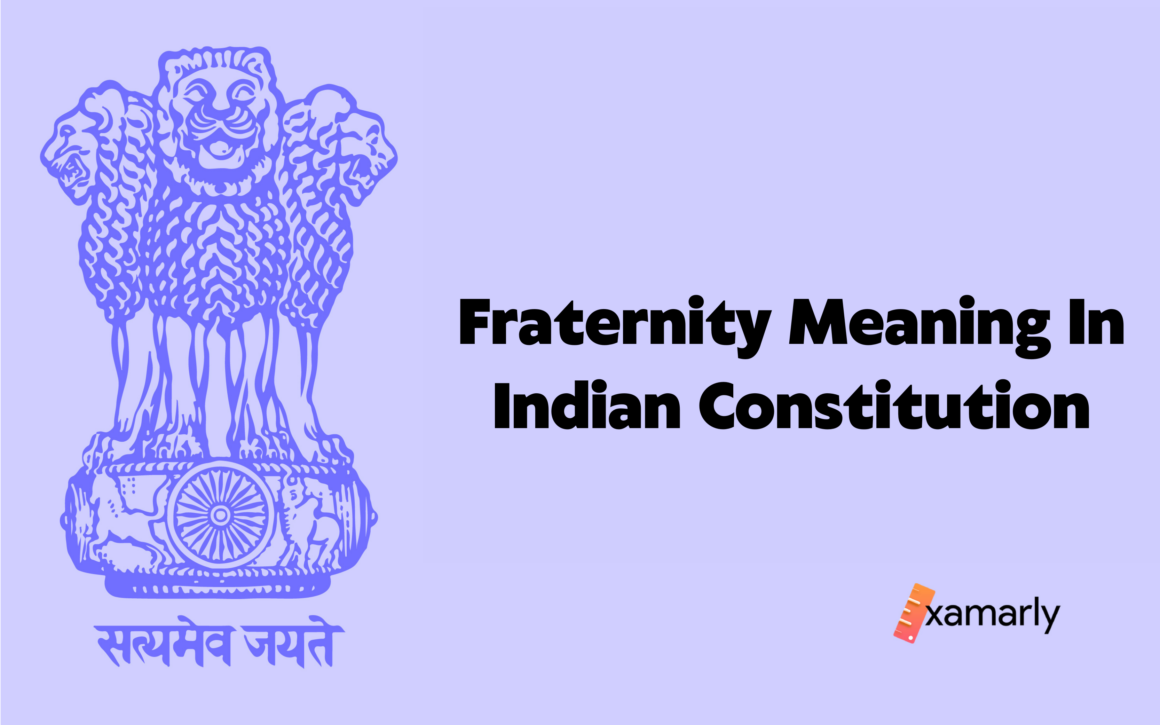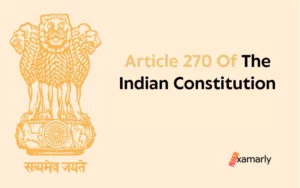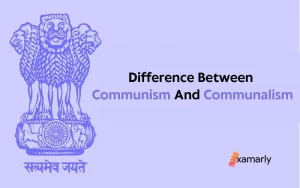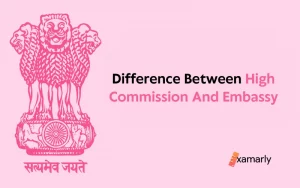You must have heard of the world Fraternity a lot of times. Let us understand how this word came into being and what is the Fraternity Meaning In Indian Constitution.
Introduction
Fraternity is an emotion related to the brotherhood among the local populace and an emotional attachment to one native nation is referred to as fraternity. India is a country with great diversity, therefore the brotherhood spirit ensures everyone’s dignity as well as the nation’s cohesion and integrity. In addition to serving as the unifying factor between unity and equality, the fraternity also gives rise to new rights that help achieve the constitutionally mandated aim of an egalitarian society.
Preamble Of The Constitution Of India
- The “Preamble” of the Indian Constitution is a succinct introductory statement that outlines the fundamental goals and tenets of the text.
- It also identifies the source of the document’s authority, i.e., the people.
- Jawaharlal Nehru’s Objectives Resolution, which the Constituent Assembly approved on January 22, 1947, set forth the principles that would later become the Preamble to India’s Constitution.
- It got approved by the Constituent Assembly on November 26, 1949, and it was enacted on Jan 26, 1950.
- The Preamble outlines the Constitution’s goals, albeit it is not binding on courts. It also serves as a guide for interpreting unclear wording in the Articles.
Components of Preamble
The table below lists the four primary components of the Indian Preamble, which are the Indian Constitution’s source, the nature of the Indian State, the Constitution of India’s purposes, and the date the Indian State was established:
| The preamble to the Indian Constitution | |
| Source of the Indian Constitution | The People of India are revealed to be the source of the authority of the Indian Constitution. The words, ‘We, the People of India’ reflect the same. |
| The Nature of the Indian State | The Preamble of India tags India as a sovereign, secular, republic, secular and democratic nation |
| The Objective of the Indian Constitution | Justice, Liberty, Equality and Fraternity are denoted as the objectives of the Preamble of India |
| Adoption Date of the Constitution of India | November, 26, 1949 as the date when then the Indian Constitution was adopted |
Keywords Of The Preamble
Important Keywords of the preamble are as given below :
Sovereign
- It suggests that opinions regarding both internal sovereignty and external sovereignty must be made alone by the independent nation.
- India has its own Independent Authority, The Indian government cannot be forced to comply with the wishes of any External power. It shows that India is a free and independent country, not a colony or dependent on another state.
- It implies that India is a supreme power and that neither domestic nor foreign forces can undermine the rule of law in India.
- India is protected from outside interference in its internal issues because it is a sovereign nation.
Socialist
- In a socialist society, everyone shares equally in the various areas of resource production, allocation, and commerce. Such ownership is possible under a democratic form of government.
- Socialism has also been represented via a cooperative system in which each community member owns a piece of the assets.
Secular
- The Indian Constitution is a model of secularism, and it accords equal standing and assistance from the state to all religions in the nation, regardless of their influence.
- It highlights the constitutional values of secularism of India and the absence of an official religion.
And that rather than favoring or patronizing any one religion, the state must respect and accept all of them.
You Might Also Like – Secular Meaning in Indian Constitution
Democratic
- According to the Preamble of the Indian Constitution, a democratic form of government is based on the idea of popular sovereignty or the people’s ownership of ultimate power.
- A democratic parliamentary system was established by the Indian Constitution, and the legislature was granted the responsibility for holding the executive branch of the government and they are answerable for the entirety of its actions.
- The democratic nature of the Indian polity is demonstrated by the universal adult franchise, regular elections, rule of law, the autonomy of the judiciary, and lack of prejudice on specific grounds.
- The word “democratic” is used broadly in the Preamble of the Indian Constitution for referring to social and economic democracy in addition to political democracy.
- Dr Ambedkar emphasized this aspect in his closing remarks to the Constituent Assembly on November 25, 1949.
Republic
- The word “republic” in our Preamble, stands for that India has a president who is elected to lead the country. For a predetermined five-year tenure, he is indirectly chosen.
- A republic also indicates that there is no privileged class and that the people rather than a single person, hold political sovereignty.
- Our nation is described as a Sovereign, democratic republic in the preamble of the constitution.
Justice
- In the Preamble Of the Indian Constitution, social, economic, and political justice are all mentioned.
- Justice refers to more than just what is just in a legal sense. It is important to note that the phrases “social” and “economic” come before the word “political.”
- For the sake of social justice, discrimination against people should be outlawed regardless of their race, ethnicity, gender, or religion.
- All citizens should have equal access to opportunities for public appointments to achieve that goal. The common good of all citizens must be the goal of the government.
- Everyone is granted equal Political rights and equal Political Opportunities without any type of discrimination.
- Economic Justice for all citizens and no discrimination on the grounds of wealth and economic status of someone in the society.
- The idea of a welfare state in the Directive Principles is a representation of guidelines for achieving the social justice envisioned in the Preamble.
- Democracy and the concept of liberty go hand in hand; for a society to be free and civilised, each member must have access to a specific set of fundamental rights.
- These fundamental rights are described as freedom of thought, expression, religion, faith, and worship in the Preamble of the Indian Constitution.
- Given that liberty cannot become a license in a democracy, it is specifically safeguarded in the chapter on fundamental rights, subject to some limitations.
Equality
- All Indian people are guaranteed equality of status and opportunity under the Preamble of the Indian Constitution. This clause includes the civil, political, and economic facets of equality.
- The Fundamental Rights forbid the State from discriminating towards individuals based on caste, race, sex, or religion alone.
- It also put forward the idea of not granting special privileges to any section or individual of society.
Fraternity
- The Preamble states that brotherhood must guarantee two things: the dignity of the person and the harmony and the country’s integrity.
- Draft Committee of the Indian Constitution felt the necessity of fraternal concord and goodwill in the Union of India.
- Its goal is to eliminate barriers to national unity such as communalism, regionalism, casteism, and separatism.
- This is a reference to a feeling of loyalty to one’s country, one’s brothers and sisters, and oneself.
- The Term “integrity” was added to the Preamble by the Forty-Second Amendment of the Indian Constitution (1976).
- Inclusion of the Term Fraternity is sometimes linked with the assassination of Mahatma Gandhi amidst the blood-filled history of the partition of India.
Reflection On Fraternity Meaning In Indian Constitution
- The Preamble claims that fraternity protects basic humanity and national integrity. Integrity was added to the Indian Constitution by the Forty-Second Amendment Act of 1976.
- The term “dignity of the individual” indicates that the Constitution not only upholds a democratic process and guarantees material progress, but also recognizes the value of every person’s unique identity.
- The behavioral and topographical aspects of national integration are referred to as “national unity and integrity.”
- Article 1 of the Constitution refers to India as a “Union of States” to highlight the indestructibility of the Indian Union. Therefore, The States have no power to secede from the Indian Union,
- Its goal is to eliminate barriers to national unity such as communalism, regionalism, casteism, and separatism. A decent life for all people is its ultimate aim.
Fraternity for Us
- The French word for Common brotherhood, friendship, community, and cooperation is fraternity.
- Ambedkar placed a strong emphasis on brotherhood when writing the Indian Constitution in all these ways. He explained that “fraternity” refers to a feeling of shared brotherhood among all Indians—if they are viewed as one people.
- It leads to a happy life for the common people and enhances their Political life also in the long run.
- It is the guiding idea that makes social life cohesive and robust. Without liberty, equality and fraternity, in his opinion, “will be no deeper than a coat of paint.” Without fraternity, liberty and equality could not develop into a natural flow of events, he said. To enforce them, a constable would be needed.
Fraternity for the People
- The word “fraternity” comes from the word “fraternité,” which is a synonym for “brotherhood,” “friendship,” “community,” and “partnership”.
- When writing the Indian Union’s Constitution, Ambedkar gave the concept of fraternity the utmost priority. It makes sure that social life is solidarized and cohesive. Liberty and equality cannot naturally arise without the fraternity.
- Fraternity is a key component in affirming “the dignity of the person” and the “unity” of the country, according to the Constitution Of India. Even though we vary in terms of language, culture, tradition, caste, colour, ethnicity, class, and gender, the earlier is made possible by acknowledging one another’s moral equality, which is sustained via mutual understanding.
Conclusion
The term “fraternity” stands for A sense of brotherhood among the local populace. The idea of Fraternity puts forward the impression that everyone is connected and shares the same ground in this way. Brotherhood is a connection that surpasses established conventions and limitations and spans caste, age, and gender limits. Fraternity contributes to the honor and integrity of the country.
FAQs
What Is Fraternity In Indian Constitution?
The Indian Constitution’s preamble contains the word “fraternity.” The idea of Fraternity is that everyone in our nation should have a sense of global brotherhood. We ought to treat one another with honor, respect, and dignity.
What is Preamble? Explain the terms Justice, Liberty, Fraternity, and Equality mentioned in the Preamble of the Indian Constitution.
The Indian Constitution’s Preamble outlines the constitution’s aims and purposes, it is sometimes referred to as an introduction to the Indian Constitution.
Justice is defined as the social, economic, and political equality of all Indian citizens in terms of
Liberties of thought, expression, belief, faith, and worship are guaranteed under the Preamble.
Equal opportunity and status are two concepts referred to as equality. Additionally, it states that all citizens are treated equally by the law and are given the same protection under the law. The Equitable distribution of wealth is also one of the important concepts of equality. The purpose of Articles 14 to 18 is to eliminate all social inequalities.
A sense of brotherhood among the local populace is referred to as the ambit of fraternity. Given the enormous diversity of India, the nation’s unity and integrity are guaranteed, as is the dignity of every individual.






